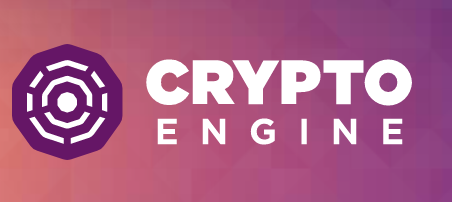"Bitcoin Revolution" is a name that has been used by several cryptocurrency trading platforms, often advertised as automated trading systems or robots. These platforms claim to enable users to profit from Bitcoin and other cryptocurrencies by using algorithms to execute trades automatically. However, it's important to exercise caution and be aware of the following points:
-
Highly Marketed, High-Risk Systems: Like many similar platforms, "Bitcoin Revolution" is heavily marketed as a way to make significant profits with little effort. However, it's essential to understand that all forms of cryptocurrency trading carry high risks, especially with automated systems.
-
Claims of High Profitability: These platforms often claim extremely high rates of success and profitability. Such claims should be approached with a great deal of skepticism, as they can be misleading and unrealistic.
-
Potential for Scams: The name "Bitcoin Revolution" has been associated with various websites and platforms, some of which may be scams. There have been reports of fraudulent activities linked to platforms using this and similar names.
-
Use of Celebrity Endorsements: Some of these platforms have used unauthorized and fake celebrity endorsements to promote their services. These endorsements are often completely fabricated.
-
Lack of Regulation: Many of these automated trading systems operate in regulatory grey areas. They may not be subject to the stringent regulations that govern legitimate financial service providers, leading to a lack of consumer protection.
-
Due Diligence: Before investing in any platform, especially those promising quick and high returns like "Bitcoin Revolution," it's crucial to do thorough research. Check for independent reviews, verify claims, and be aware of the risks involved.
-
Understanding Cryptocurrency Risks: Cryptocurrency markets are known for their extreme volatility. Investing in these markets requires an understanding of the risks, including the possibility of losing your entire investment.
In summary, while platforms like "Bitcoin Revolution" claim to offer easy and profitable trading opportunities, they should be approached with caution. The high-risk nature of cryptocurrency trading, combined with the lack of regulatory oversight for many such platforms, calls for a careful and informed approach to investing. Always prioritize platforms that are transparent, regulated, and have a verifiable track record.
What Does '# The use of the term “Bitcoin Revolution” is intended for all commercial purposes, and refer to no particular brand, entity, or company.' Mean on the Bitcoin Revolution Website?
The disclaimer '# The use of the term “Bitcoin Revolution” is intended for all commercial purposes, and refer to no particular brand, entity, or company' found at the bottom of the Bitcoin Revolution website is significant for several reasons:
-
Brand Ambiguity: This statement suggests that "Bitcoin Revolution" is a generic term used by the website for marketing purposes, rather than referring to a specific brand, entity, or company. This can create ambiguity about what the website represents or is affiliated with.
-
Avoiding Brand Responsibility: By stating that the term doesn't refer to any particular brand or company, the website might be attempting to avoid responsibility or association with any specific organization, especially if there have been negative reports or reviews associated with similarly named entities.
-
Commercial Purpose: The mention of "commercial purposes" indicates that the name "Bitcoin Revolution" is used as a marketing tool to promote the website's services or products. This can be a tactic to attract users through a catchy and appealing term.
-
Legal Protection: Such disclaimers are often used to protect the website legally. If users misinterpret the nature of the service or associate it with another entity, the disclaimer can be a way to mitigate potential legal issues.
-
Reducing Specificity: By not tying itself to a specific brand or entity, the website may be trying to broaden its appeal or avoid being constrained by the reputation or limitations of a singular brand.
This kind of disclaimer is a signal to exercise caution. It suggests that the website may not be transparent about its affiliations or intentions. When encountering such disclaimers, it's important to conduct thorough research, look for independent reviews, and understand the service being offered before engaging or investing.

I Was Taken to that Site by a 'Crypto Genius' Review on TokenHell.com
The fact that you were directed to the "Bitcoin Revolution" site from a review on TokenHell.com about "Crypto Genius" warrants a cautious approach for several reasons:
-
Affiliate Marketing: The link from a review on one website (TokenHell.com) to another (Bitcoin Revolution) could be part of an affiliate marketing strategy. Websites sometimes earn commissions by directing traffic or sign-ups to other services.
-
Vetting the Source: The credibility of the review on TokenHell.com should be carefully considered. It's important to assess whether the site provides unbiased, well-researched information or whether it might have a financial incentive to promote certain products or services.
-
Potential for Scams: The cryptocurrency space, unfortunately, includes numerous scams and misleading schemes. Websites and platforms that promise high returns with little risk, especially those using automated trading systems, should be approached with skepticism.
-
Cross-Promotion of Crypto Services: The practice of cross-promoting various crypto services or platforms, especially those making bold claims, is common in the industry. However, not all of these services are legitimate or reliable.
-
Research and Due Diligence: Conduct thorough research on both "Crypto Genius" and "Bitcoin Revolution." Look for independent reviews, user testimonials, and any reports of fraudulent activity. Verify claims and promises independently rather than relying solely on linked sources.
-
Understanding the Risks: Remember that cryptocurrency investments carry significant risk, particularly with systems claiming automated or unusually high returns. These risks should be clearly understood before any investment is made.
-
Regulatory Compliance: Check the regulatory status of any platform you consider using. Many legitimate platforms are subject to financial regulations and offer a degree of transparency and customer protection.
In summary, when exploring cryptocurrency investment opportunities, especially those found through affiliate links or reviews on third-party websites, it's essential to be thorough in your research and critical of the information presented. Be wary of platforms or services with grandiose claims and always prioritize your financial safety.
Does This Mean Tokenhell is a Dangerous Affiliate?
If you were directed to another site like "Bitcoin Revolution" from a review on TokenHell.com, especially if that redirection included promotional or sign-up links, it is possible that TokenHell.com could be participating in affiliate marketing. Here are some points to consider:
-
Affiliate Marketing Practices: Affiliate marketing involves referring visitors to a product or service and earning a commission for each sign-up or purchase made through the referral. Websites often use this as a monetization strategy.
-
Evaluating Content: If the content on TokenHell.com seems to heavily promote specific products or platforms, especially with direct links to sign-up pages, this could indicate affiliate marketing. Reviews that seem overly positive or lack critical analysis might be part of such efforts.
-
Disclosure of Affiliation: Reputable websites engaging in affiliate marketing typically disclose this information to their users, as per various advertising standards and regulations. Look for disclaimers or statements on the website indicating affiliate relationships.
-
Need for Independent Research: Regardless of whether TokenHell.com is an affiliate, it's crucial to conduct independent research. Look for additional sources of information and reviews to get a balanced understanding of any cryptocurrency platform or service.
-
Understanding Motivations: Remember that the primary goal of affiliate marketing is to generate revenue through referrals. While some affiliates provide honest reviews, others may prioritize their potential earnings over unbiased reporting.
-
Caution with Cryptocurrency Investments: The cryptocurrency market is rife with volatility and risk. Approach any investment opportunity, especially those promoted via affiliate links, with caution and thorough research.
In conclusion, while it's not possible to definitively state whether TokenHell.com is an affiliate without direct evidence, the nature of the content and how it directs users can often be indicative. Always look for transparency and multiple sources when considering information from such sites.

These Affiliates Run Hundreds of Sites
Indeed, the prevalence of affiliate marketing networks in the cryptocurrency and financial trading space can make it challenging to find unbiased information. Affiliates often operate or influence multiple websites, creating an echo chamber of similar claims and reviews. Here's how you can navigate this landscape more effectively:
-
Seek Independent Reviews: Look for reviews from established and reputable financial news websites, consumer protection sites, and well-known financial analysts or experts. These sources are more likely to provide unbiased information.
-
Forums and Community Feedback: Check cryptocurrency forums, Reddit, and other online communities. Real user experiences, especially those detailed in community discussions, can provide a more realistic picture.
-
Regulatory Websites: Visit websites of financial regulatory authorities for information on registered and regulated platforms. Many regulators also publish warnings about unregulated or dubious platforms.
-
Fact-Checking and Verification: Cross-reference claims made by different websites. If multiple sites make the same exact promises or use similar language, it could indicate a network of affiliate sites.
-
Educational Resources: Utilize educational resources provided by established financial institutions or regulatory bodies to understand how legitimate trading platforms should operate.
-
Professional Advice: If possible, consult with a financial advisor or someone with expertise in cryptocurrency and online trading.
-
Caution with Personal Information: Be cautious about where you provide your personal information, especially on platforms that seem to be part of an affiliate network.
-
Look for Transparency: Legitimate platforms typically provide clear information about their fees, processes, and regulatory compliance. A lack of transparency is a red flag.
By approaching information sources critically and verifying claims through multiple independent channels, you can better protect yourself from misleading information and potential scams. Remember, if an investment opportunity sounds too good to be true, it often is, especially in the high-risk world of cryptocurrency trading.

Every Mention of these Scams is an Affiliate Link
The situation where every mention of certain cryptocurrency schemes leads to affiliate links is a strong indicator of widespread affiliate marketing strategies being used, potentially for promoting dubious or scam platforms. This prevalence can create a misleading and biased online landscape. Here’s what to consider in such a scenario:
-
Widespread Affiliate Networks: Some scam operations extensively use affiliate networks to promote their platform. This results in a large number of websites and reviews directing users to the scam through affiliate links, often exaggerating claims or presenting false information to entice sign-ups.
-
Critical Evaluation of Sources: Given this environment, it's crucial to critically evaluate the credibility of the sources you consult. Many sites may not have genuine user interests at heart and are primarily focused on earning commissions.
-
Seeking Non-Affiliated Opinions: Try to find information from sources that are not part of these affiliate networks. This includes well-established financial news websites, official regulatory body notices, and recognized financial advisory services.
-
Regulatory Warnings and Listings: Check if any regulatory bodies or consumer protection agencies have issued warnings about these platforms. Many financial regulators maintain lists of unregistered or potentially fraudulent services.
-
Understanding the Risks: Be aware of the high risks involved in cryptocurrency investments, especially with platforms promising high returns with little to no risk.
-
Avoiding Quick Decisions: Don’t rush into signing up or investing based on what you read from these sources. Take your time to research thoroughly and consider the potential risks.
-
Reporting Suspicious Activity: If you encounter what appears to be a scam, consider reporting it to the relevant financial regulatory authorities. Your report could help others avoid being scammed.
In an online landscape filled with affiliate links and potential misinformation, especially around high-risk investment opportunities like cryptocurrencies, exercising caution and conducting thorough, independent research is more important than ever.

Everything About Their Fake Reviews is Designed to Make you Sign-up Quickly
The tactic of crafting fake reviews to encourage rapid sign-ups is a common strategy in many online scams, particularly in high-risk areas like cryptocurrency trading. These reviews are designed to create a sense of urgency, often capitalizing on the fear of missing out (FOMO) or the allure of quick and easy profits. Here's how to recognize and approach such tactics:
-
Creating a Sense of Urgency: Scams often use language that suggests immediate action is necessary to avoid missing out on a lucrative opportunity. This pressure tactic aims to rush potential victims into making decisions without adequate research or consideration.
-
Too Good to Be True Offers: Be wary of reviews that promise high returns with little to no risk. In the world of investing, particularly with volatile assets like cryptocurrencies, high returns typically come with high risks.
-
Lack of Detailed Information: Fake reviews may lack specific, verifiable details about the platform's performance, fees, regulatory status, and the risks involved.
-
Unverified Success Stories: Be cautious of reviews featuring overly enthusiastic success stories, especially if they cannot be independently verified or seem exaggerated.
-
Consistency Across Different Sites: If multiple websites feature similar language, promises, and reviews, it could indicate a coordinated effort to mislead or deceive potential users.
-
Manipulative Language and Tactics: Phrases like "limited spots available" or "guaranteed profits" are red flags. Legitimate investment platforms do not guarantee profits, and they don't typically limit the number of users.
-
Check for Independent Verification: Look for information from independent, reputable sources. This includes financial news sites, regulatory bodies, and well-known financial analysts or advisors.
-
Take Time to Decide: Avoid making quick decisions based on such reviews. Good investment opportunities don’t require you to sign up instantly. Take your time to understand what you’re getting into.
-
Regulatory Compliance: Verify whether the platform in question is regulated by a reputable financial authority. This can often be a litmus test for its legitimacy.
In conclusion, whenever you encounter reviews that seem overly persuasive and push for quick sign-ups, it's advisable to step back and conduct thorough, independent research. In the realm of financial investments, rushing into decisions can lead to significant losses and regrets. Always prioritize safety and caution over the urgency presented in such reviews.

How Can We Succeed in Warning People?
Creating a webpage specifically designed to outrank other pages in search engine results, especially for the purpose of warning people about potential scams, is a noble intention. However, achieving a higher ranking than established affiliate pages can be challenging due to various factors, including the algorithms used by search engines and the SEO strategies employed by these affiliate sites. Here are some guidelines for creating an effective and informative webpage:
-
Informative and Relevant Content: Focus on providing valuable, detailed, and accurate information about the potential scams. The content should be informative and help readers understand why these offers are scams, how to identify them, and how to protect themselves.
-
Use of Keywords: Incorporate relevant keywords naturally into your content. These might include terms like "cryptocurrency scam," "investment fraud," "Bitcoin Revolution scam," etc. However, avoid keyword stuffing, as this can negatively impact your search engine ranking.
-
Regular Updates: Regularly update the webpage with new information, insights, or news related to the scam. This helps in maintaining the relevance and freshness of the content, which is favored by search engines.
-
Backlinking: Work on getting backlinks from reputable and authoritative websites. This can significantly enhance your webpage's authority and ranking.
-
User Engagement: Encourage user interaction and engagement. This could include comments, forums, or sharing personal experiences. Search engines tend to favor pages with higher user engagement.
-
Optimize for SEO: Follow best practices for SEO (Search Engine Optimization). This includes optimizing title tags, meta descriptions, and using structured data where appropriate.
-
Mobile Responsiveness: Ensure your website is mobile-friendly, as a significant portion of web searches are done on mobile devices.
-
Loading Speed: Optimize your website’s loading speed. Faster-loading websites are ranked higher by search engines.
-
Social Media Sharing: Promote your content on social media platforms to drive traffic and engagement.
-
Compliance with Webmaster Guidelines: Make sure your website complies with the guidelines provided by search engines like Google. This ensures your site is not penalized or suppressed in search rankings.
Remember, while these practices can help in improving your webpage's ranking, overtaking well-established affiliate sites, especially those using aggressive SEO tactics, can be a long-term and often difficult process. The key is to focus on providing genuine, valuable, and reliable content that serves the interests of your audience.